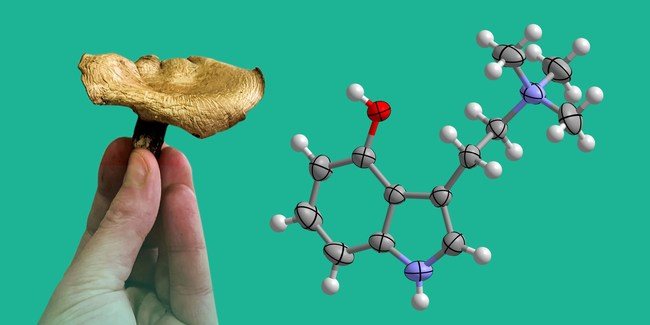CaaMTech scientists hope to unlock the euphoria experienced from the consumption of psilocybin mushrooms
NEWS PROVIDED BY CaaMTech, Inc.
Jul 06, 2020, 13:00 ET
ISSAQUAH, Wash., July 6, 2020 /PRNewswire/ — CaaMTech, Inc. announced today that CaaMTech scientists have synthesized two important tryptamines for the very first time: Amphoria™ (4-HO-TMT), and Prophoria™ (4-AcO-TMT). Reported in ACS Omega, CaaMTech’s groundbreaking research paves the way for a significantly improved scientific understanding of the effects of psychedelic mushrooms.

Interest in the use of psychedelic medicines to treat a long list of conditions (including depression, PTSD and many more) has been steadily on the rise. Science and popular discussion have primarily focused on a single molecule that is found naturally in a variety of species of fungi and is known to produce psychedelic effects: psilocybin. Species that produce psilocybin are colloquially referred to as “magic mushrooms” and have been used traditionally for thousands of years.
The same biological processes that produce psilocybin are responsible for the production of a number of other tryptamines. Some of these tryptamines are believed to be metabolized by the body into metabolites that are active at the same serotonin (5-HT) receptors as psilocybin’s active metabolite. These compounds have garnered little attention or scientific research, until now.
Aeruginascin (or N,N,N-trimethyl-4-phosphoryloxytryptamine) is one such lesser-known “magic mushroom” tryptamine. For the very first time, CaaMTech has synthesized Amphoria™, the suspected active metabolite of aeruginiscin. Little is known about this compound: Some experts implicate it as the cause of wood lover paralysis, while others have suggested it may be the key to a euphoric “magic mushroom” experience. CaaMTech’s synthesis of this compound represents a critical step towards understanding the effects of psilocybin mushrooms.
“Amphoria™ has been implicated in causing two profound clinical effects, euphoria and temporary paralysis,” said Dr. Andrew Chadeayne, CEO of CaaMTech and lead author on the ACS Omega publication. “Scientists have attributed our general lack of understanding in this area to a lack of access to the relevant compounds. Our work facilitates research by filling this unmet need for analytically pure compounds.”
Prophoria™, the second molecule reported, is a novel tryptamine. An analogue of aeruginascin, Prophoria™ is also expected to be metabolized into Amphoria™. Akin to the psilocybin analogue psilacetin, Prophoria™ is easier and less expensive to make than aeruginascin itself and thus provides a convenient, cost-effective means for administering aeruginascin’s active metabolite.
“Given the building momentum behind magic mushroom decriminalization and legalization, understanding all of the molecules in those mushrooms and their effects seems like a good idea,” concluded Dr. Chadeayne.
About CaaMTech
CaaMTech is the foremost drug discovery and lead optimization company focused on engineering psychedelic drugs that meet the standards of modern medicine. CaaMTech is improving the health and happiness of humankind by creating and optimizing psychedelic compounds and formulations.
Media Contact
Davis Wuolle
davis@caam.tech
+1.510.747.9001
Related Images
caamtech-synthesizes-novel.png
CaaMTech Synthesizes Novel Tryptamine Prophoria™
CaaMTech scientists hope to unlock the euphoria experienced from the consumption of psilocybin mushrooms
Related Links
SOURCE CaaMTech, Inc.






